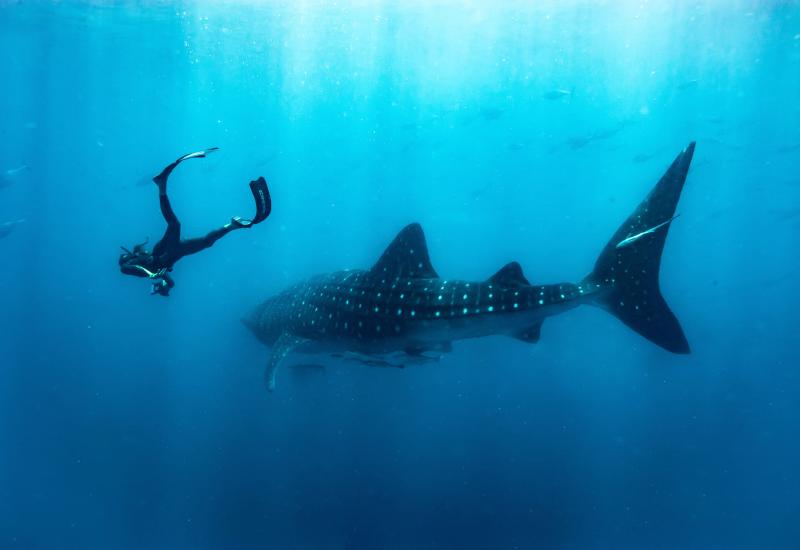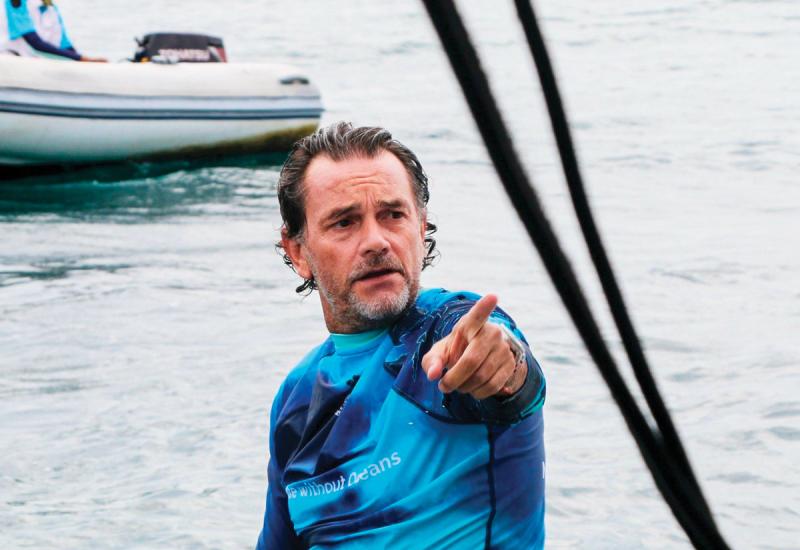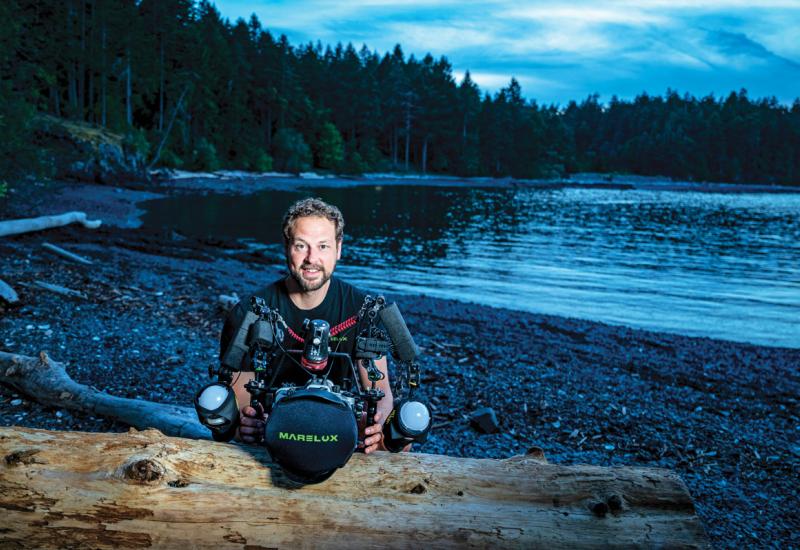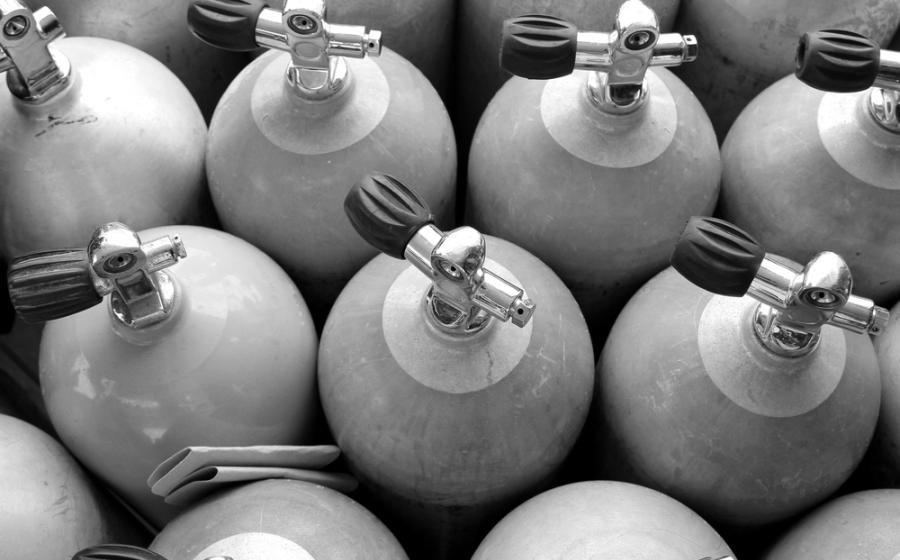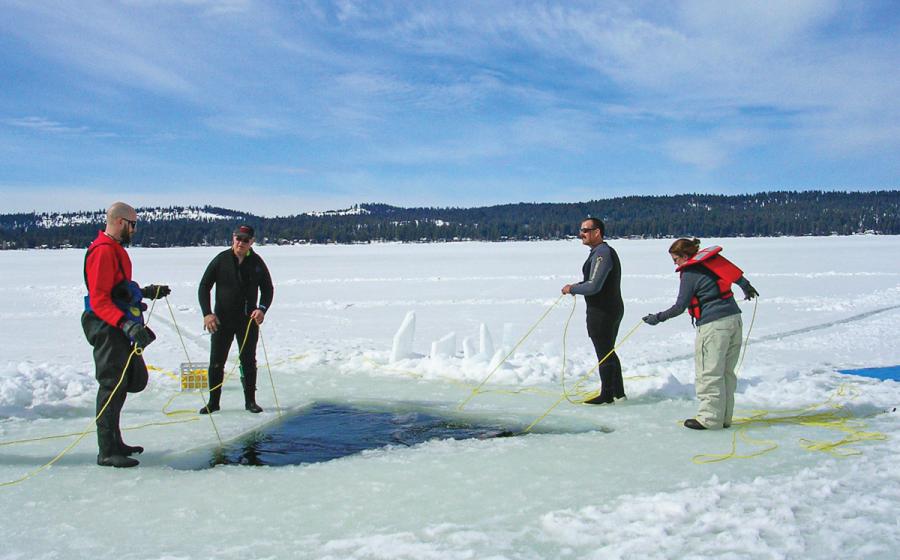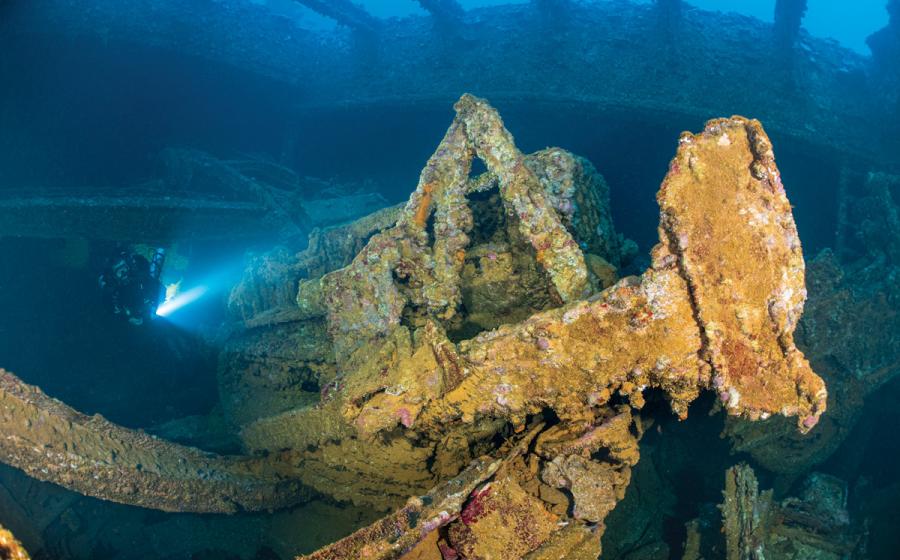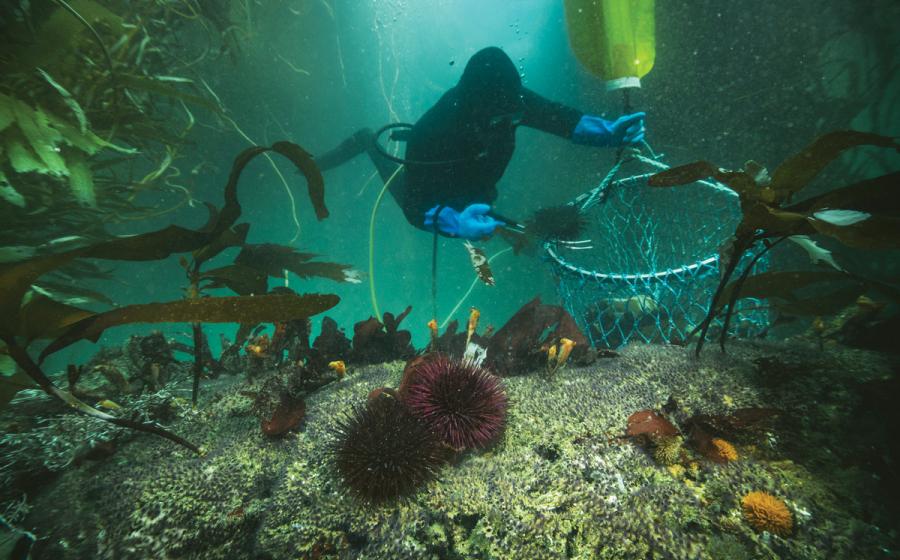Ocean Advocate Samantha Whitcraft Named Sea Hero
YEAR DIVE CERTIFIED: 1995
AGE WHEN CERTIFIED: 28
DIVE CERTIFICATION LEVEL(S):
• PADI Instructor
• SSI Platinum Pro 5000 Diver
• Served as dive safety officer for the Kaho’olawe Marine Reserve off Maui, Hawaii
• NOAA Research Diver with the Southeast Fisheries Science Center, Miami, Florida
WORDS TO LIVE BY: The ocean is my church; water my religion.
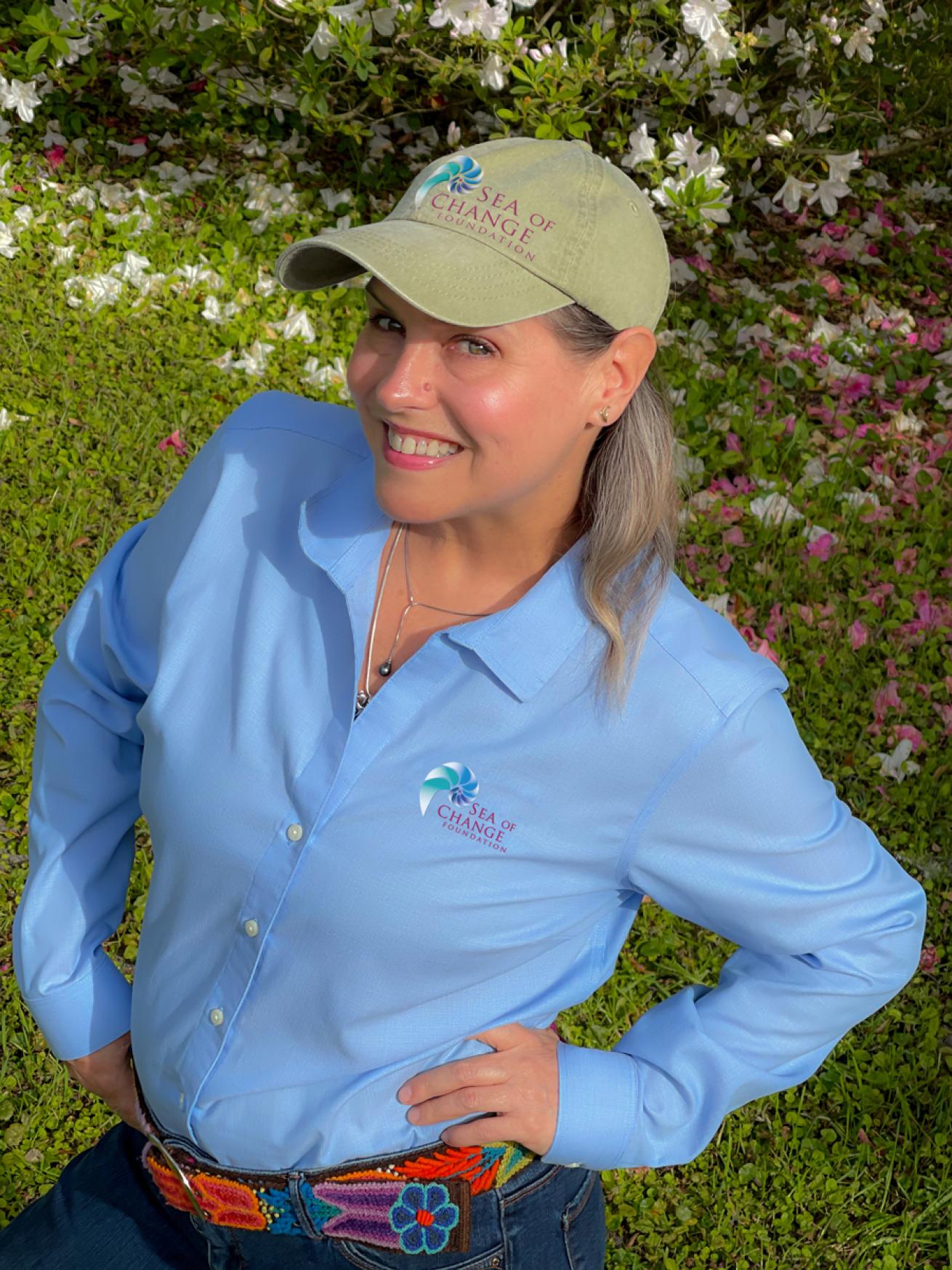
Courtesy Sea of Change FoundationSamantha Whitcraft
Samantha Whitcraft was a force in conservation long before she took over the charitable foundation of one of the biggest liveaboard fleets in the world, Aggressor Adventures. At the helm of the Sea of Change Foundation—where 100 percent of donations go directly to foundation projects—she connects the dots between conservation and commerce, knowing that the future of the dive industry depends on the marriage of sustainable eco-tourism and community-based conservation. For that she is our May Sea Hero.
Q: Why is the connection between commerce and conservation so important?
A: I’ve long believed that well-planned, sustainable eco-tourism can be a powerful tool for conservation, having seen the approach successfully initiated decades ago in Costa Rica’s rain forests and sea turtle nesting beaches. That country realized that their natural resources were worth more alive to tourists than dead to hunters and poachers. The key lesson of my undergraduate field work in Costa Rica was that, for most conservation to be viable, it must at minimum 1) be supported by and involve the local community, and 2) provide an economic benefit to that community.
For example, divers often say that one of their most sought-after encounters includes big shark species. These species are seen most where they are protected, like Guadalupe Island, Tiger Beach in the Bahamas and the Galapagos Islands. In turn, the presence of these protected areas and their sharks adds value to the local dive industry and thus the local community too. In recognizing this, the Sea of Change Foundation funded the first marine life census in Las Catalinas, Costa Rica, with an eye towards developing tourism around a ray nursery. With our partners at the University of Costa Rica, Ocean First Institute and ConnectOcean Dive Center, we funded the purchase and installation of an acoustic tracking array to better understand how, when and where to protect charismatic ray species that could attract more divers to the area. When species attract visiting divers, they are more likely to be protected from habitat loss, over-fishing and by-catch.
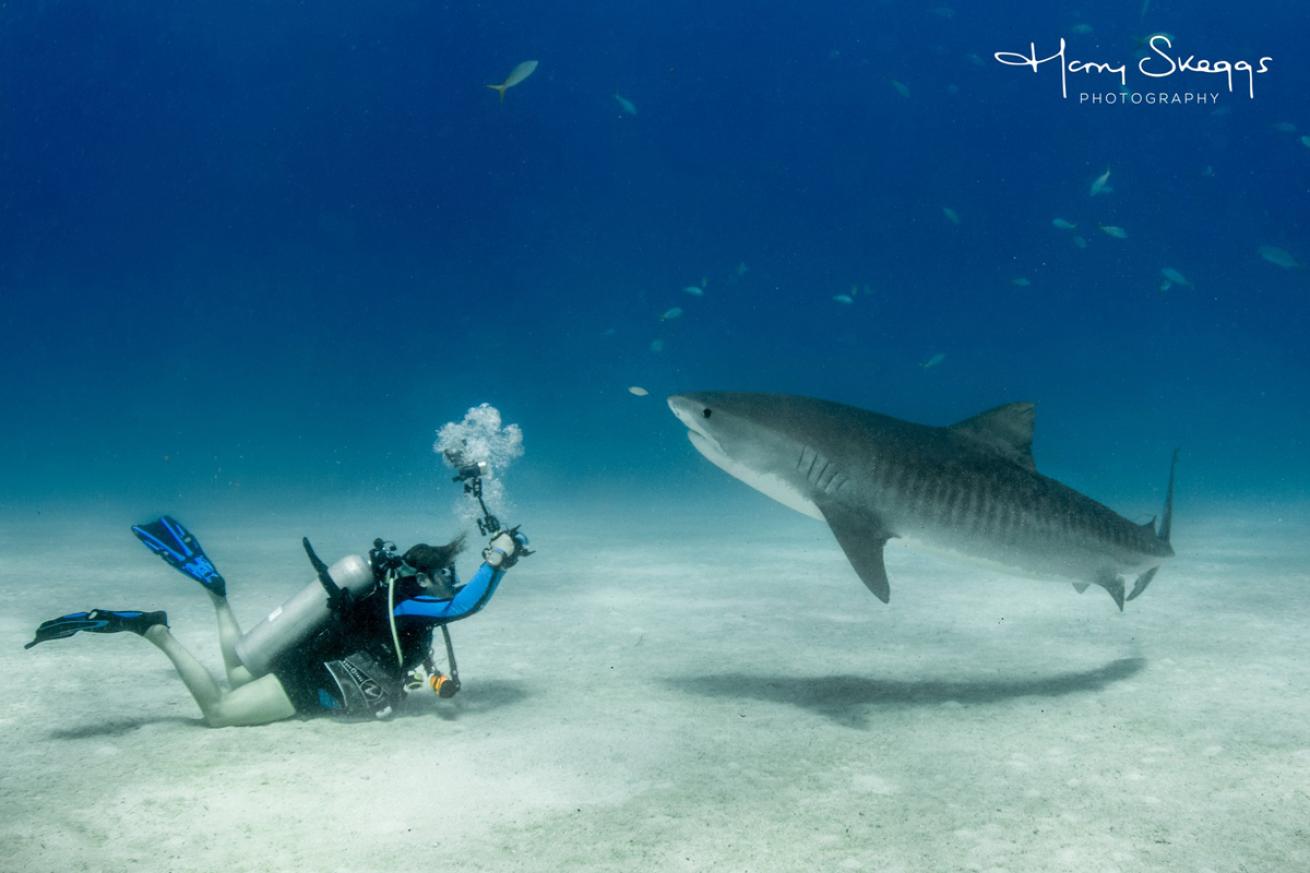
Courtesy Harry SkeggsWhitcraft and a friend at the Bahamas’ famed Tiger Beach.
Q: What are your Reef Rescue and Rapid Response grants?
A: In 2017, I helped lead a whale survey in Indonesia with the Oceanic Society; I was thrilled to finally get to dive Raja Ampat. There was so much life, color, texture—all pristine. Diving in Raja Ampat gave me a renewed sense of hope for the future of coral reefs.
Shortly after I returned, the Caledonian Sky cruise ship grounded on a treasured dive site I had just enjoyed, destroying approximately 1,600 square meters of coral reef. I was heartbroken, and imagined what I could do with some funding, if I were there. This solidified my resolve to lead the Sea of Change Foundation in creating a new kind of grant to enable local, timely responses to such incidents. Soon after, we launched the Reef Rescue & Rapid Response (RRRR) Fund.
The goal is to empower local divers as first responders to vessel groundings and anchor drops, storm damage from failed infrastructure like docks and jetties, and oil spills, for example. When these impacts happen, there is a lot divers can and want to do. For example, divers can restore dislodged corals to allow the colony to recover, physically remove debris, install oil booms where needed, and collect coral fragments for transplanting. Because we recognize that time is of the essence, we make the application process short—generally one page—so we can send out funds as quickly as possible, ideally in under two weeks. Once a project is approved, we provide funds ranging from $500 to $5,000 for things like boat gas, lift bags, meter tapes, oil booms and field gear and materials. Divers can learn more at seaofchange.com
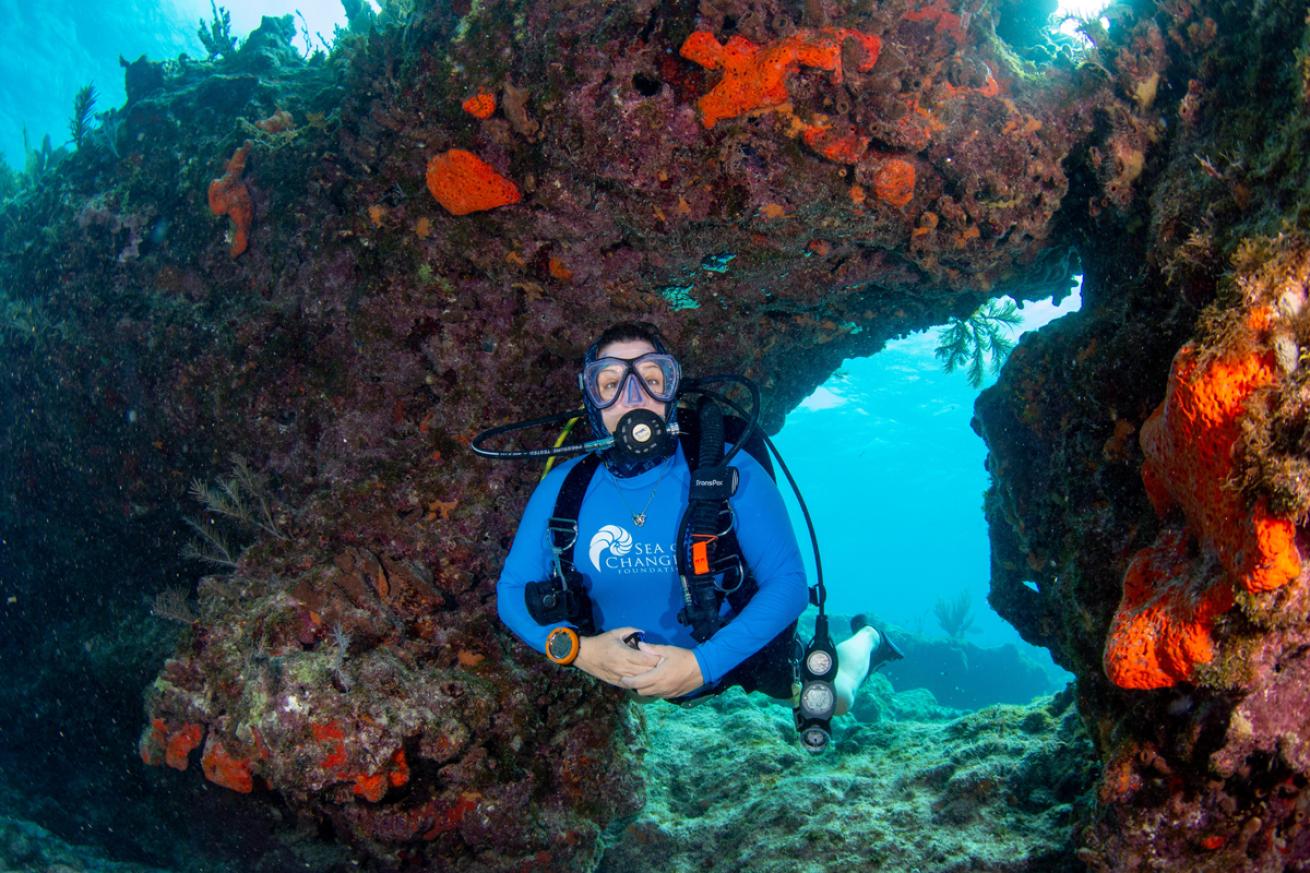
Courtesy Sea of Change FoundationDiving Cuba’s Gardens of the Queen to assess endangered corals.
Q: You also lead Aggressor’s sustainability initiative — tell us why this matters?
A: Soon after I joined as director of conservation & outreach, I was thrilled to be sent on a yacht to learn the ropes. Coming from a research background, I was impressed with the service and operations. At the same time, I was surprised to see plastic straws and water bottles. When I mentioned it to CEO Wayne Brown, he immediately agreed that we could provide guidance to expand sustainable choices into daily operations; we soon realized that most of the guidance applied equally to our land-based operations including our headquarters in Augusta, Georgia. The “three R’s” of plastics that come before recycling could be adopted everywhere in the company—reduce, re-use, re-purpose single-use plastics. So “Green the Fleet” includes improving energy efficiency, choosing environmentally friendly sunscreens, choosing sustainable foods, limiting unnecessary packaging, and much more!
Q: What are the greatest challenges in marine conservation?
A: Societal awareness of and responses to the plight of our oceans. As divers, we sometimes forget that most people have never seen below the ocean’s surface; most people rarely think of the ocean and don’t know or fully understand that it’s an integral part of the life-support system of our planet. That has to change, and soon. I have the opportunity to work with our operations team to increase both company and community awareness, and help empower local actions.

__edit.jpg?itok=BKSdMhr2)
